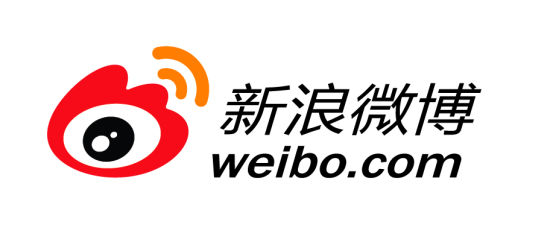 I’ll be direct and say I don’t particularly like computer security software firm Qihoo 360 (NYSE: QIHU) due to its often questionable business practices and its guerrilla-style marketing tactics, which China’s weak legal system seems to encourage through lack of meaningful penalties. That said, market watchers might want to keep any eye on the company’s new plan to put the mobile Internet at the center of its strategy going forward. Qihoo has just launched a new suite of mobile browsers (company announcement), and its CEO Qi Xiangdong says the company is devoting big resources to development of its mobile Internet business. (Chinese article) I don’t know if these new browsers are good or not. But that probably won’t matter, as Qihoo, using its guerrilla-style tactics, will find a way to get these products onto the mobile phones of most Chinese consumers in the next year or 2 whether they want them or not, much the way it has done with its Web security products. Qihoo products, once on a person’s computer or mobile phone, are also very difficult to delete, and the company often designs in features to crowd out competing products. For older folks out there, Qihoo’s tactics are reminiscent of the kinds of things AOL did in the 1990s to become the leading US Internet service provider, before its rapid fall from grace when the Internet moved from dial-up phone service to broadband. The only difference is that AOL at least acted legally, while Qihoo has the added option of illegally sabotaging rival products to help propel its new mobile browsers to prominence. If I were an investor and didn’t have any qualms about ethics, I would say that Qihoo 360 shares could look like a good bet in the future, as the mobile Internet is clearly a strong growth area and Qihoo seems to have the right stuff to be a leader in the space. But then there’s always the chance that Beijing regulators or Chinese courts may some day sit up and try to rein in this unruly company.
I’ll be direct and say I don’t particularly like computer security software firm Qihoo 360 (NYSE: QIHU) due to its often questionable business practices and its guerrilla-style marketing tactics, which China’s weak legal system seems to encourage through lack of meaningful penalties. That said, market watchers might want to keep any eye on the company’s new plan to put the mobile Internet at the center of its strategy going forward. Qihoo has just launched a new suite of mobile browsers (company announcement), and its CEO Qi Xiangdong says the company is devoting big resources to development of its mobile Internet business. (Chinese article) I don’t know if these new browsers are good or not. But that probably won’t matter, as Qihoo, using its guerrilla-style tactics, will find a way to get these products onto the mobile phones of most Chinese consumers in the next year or 2 whether they want them or not, much the way it has done with its Web security products. Qihoo products, once on a person’s computer or mobile phone, are also very difficult to delete, and the company often designs in features to crowd out competing products. For older folks out there, Qihoo’s tactics are reminiscent of the kinds of things AOL did in the 1990s to become the leading US Internet service provider, before its rapid fall from grace when the Internet moved from dial-up phone service to broadband. The only difference is that AOL at least acted legally, while Qihoo has the added option of illegally sabotaging rival products to help propel its new mobile browsers to prominence. If I were an investor and didn’t have any qualms about ethics, I would say that Qihoo 360 shares could look like a good bet in the future, as the mobile Internet is clearly a strong growth area and Qihoo seems to have the right stuff to be a leader in the space. But then there’s always the chance that Beijing regulators or Chinese courts may some day sit up and try to rein in this unruly company.
Bottom line: Qihoo 360 guerrilla marketing tactics will give its new mobile Internet initiative a good chance of success.
开门见山地说,我不太喜欢计算机安全软件公司奇虎360<QIHU.N>,因为这家公司的商业行为经常令人质疑,采用游击式营销战术,而中国法律体制不够健全,惩罚力度不足,在某种意义上纵容了此类行为。不过,这家公司日前把移动互联网放到公司未来发展的战略中心位置,市场观察人士不妨关注一下。奇虎360刚刚推出一套新的移动浏览器,该公司总裁齐向东称360将投入最大的精力去发展移动互联网。我不知道新浏览器怎麽样。不过浏览器好不好可能无所谓,因为无论消费者想不想要,可能未来一两年内,奇虎都会利用游击战术把新的浏览器加入到中国用户手机上,重演360互联网安全产品的推广过程。奇虎产品一旦安装到电脑或者手机上就很难删除,而且其产品设计往往有排挤竞争产品的特点。对於年龄稍大的人而言,奇虎战术有点美国因特网服务提供商AOL上世纪90年代的影子。唯一的区别是,至少AOL没有违法,但是奇虎却可能利用不当手段,排挤竞争产品,以推动其新的移动浏览器占据显着地位。如果我是一名不太考虑道德规范的投资者,那我会说未来奇虎360股票是一个不错的选择,因为移动互联网显然将增长强劲,而奇虎又具备成为该领域领袖的潜质。不过话说回来,难说中国监管层或中国法院哪天突然决定管教一下这匹脱缰的马。
一句话:凭借游击营销战术,奇虎360移动互联网新计划胜算颇高。
Related postings 相关文章:
◙ Qihoo Loses Yet Another Lawsuit, But No One Cares 奇虎败诉不足为戒

 Leading Web portal Sina (Nasdaq: SINA) is discovering there’s nothing like a good rumor to hammer one’s stock. The company’s shares are down nearly 18 percent over the last two days, including a 15 percent tumble on Tuesday, apparently on concerns that Beijing is preparing to license all microblogging siites, and that Sina’s sector leading Weibo service is not among 4 companies set to receive licenses. (
Leading Web portal Sina (Nasdaq: SINA) is discovering there’s nothing like a good rumor to hammer one’s stock. The company’s shares are down nearly 18 percent over the last two days, including a 15 percent tumble on Tuesday, apparently on concerns that Beijing is preparing to license all microblogging siites, and that Sina’s sector leading Weibo service is not among 4 companies set to receive licenses. ( Apple (Nasdaq: AAPL) has taken the interesting step of getting 40 new patents in China, in what looks like an opening move that could ultimately see it target the growing number of Chinese cellphone makers that use Google’s (Nasdaq: GOOG) popular Android cellphone operating system. (
Apple (Nasdaq: AAPL) has taken the interesting step of getting 40 new patents in China, in what looks like an opening move that could ultimately see it target the growing number of Chinese cellphone makers that use Google’s (Nasdaq: GOOG) popular Android cellphone operating system. ( As if things weren’t bad enough for Chinese solar firms, two new developments are casting clouds over this already struggling sector, one overseas and one at home. Overseas, foreign media are reporting that new solar cells with record efficiency developed by First Solar (Nasdaq: FSLR), one of the last US players still in business following a recent round of bankruptcies, could significantly undermine Chinese rivals. (
As if things weren’t bad enough for Chinese solar firms, two new developments are casting clouds over this already struggling sector, one overseas and one at home. Overseas, foreign media are reporting that new solar cells with record efficiency developed by First Solar (Nasdaq: FSLR), one of the last US players still in business following a recent round of bankruptcies, could significantly undermine Chinese rivals. ( The ongoing confidence crisis in the accounting practices of US-listed China stocks continues, with word that China’s securities regulator may be trying to squash the most commonly used route for Chinese firms to list overseas. Media are quoting industry sources saying the Chinese Securities Regulatory Commission has submitted a plan to the nation’s Cabinet asking it to shut down the route, known in the industry as use of Variable Interest Entities or VIEs, or at the very least require all companies that use this gray-area road to overseas listings to vet their financials through the Chinese regulator. (
The ongoing confidence crisis in the accounting practices of US-listed China stocks continues, with word that China’s securities regulator may be trying to squash the most commonly used route for Chinese firms to list overseas. Media are quoting industry sources saying the Chinese Securities Regulatory Commission has submitted a plan to the nation’s Cabinet asking it to shut down the route, known in the industry as use of Variable Interest Entities or VIEs, or at the very least require all companies that use this gray-area road to overseas listings to vet their financials through the Chinese regulator. ( After a couple of years of a low-key approach and not doing much, China’s anti-monopoly regulator is finally getting to work by investigating China Telecom’s (HKEx: 728; NYSE: CHA) dominance in the country’s broadband market. I’ll admit this is an interesting case, and have to applaud the regulator for following up on complaints by names like China Unicom (HKEx: 762; NYSE: CHU) and China Tietong that China Telecom unfairly uses its dominant position to keep others out of the market. (
After a couple of years of a low-key approach and not doing much, China’s anti-monopoly regulator is finally getting to work by investigating China Telecom’s (HKEx: 728; NYSE: CHA) dominance in the country’s broadband market. I’ll admit this is an interesting case, and have to applaud the regulator for following up on complaints by names like China Unicom (HKEx: 762; NYSE: CHU) and China Tietong that China Telecom unfairly uses its dominant position to keep others out of the market. ( It’s only 3 months since Alibaba split its consumer-oriented Taobao Website into two units, and already it’s starting to hype the more promising of the two, the B2C-focused Taobao Mall, in what’s no doubt the run-up to an IPO that could come as soon as next year. At the same time, Alibaba.com (HKEx: 1688) is continuing with its battle to win back credibility following a scandal earlier this year, in a clear divergence of strategy for these two sister companies that are both part of Chinese e-commerce leader Alibaba Group. Let’s look at Taobao Mall first. The 3-month-old company has held what was probably its first stand-alone press conference, in which it boasted it expects its sales volume to double to 200 billion yuan next year, or about $31 billion, and where it announced a new strategy where it will open its site to other online retailers like Wal-Mart-invested (NYSE: WMT) Yihaodian in addition to traditional retail names like Dell. (Nasdaq: DELL) (
It’s only 3 months since Alibaba split its consumer-oriented Taobao Website into two units, and already it’s starting to hype the more promising of the two, the B2C-focused Taobao Mall, in what’s no doubt the run-up to an IPO that could come as soon as next year. At the same time, Alibaba.com (HKEx: 1688) is continuing with its battle to win back credibility following a scandal earlier this year, in a clear divergence of strategy for these two sister companies that are both part of Chinese e-commerce leader Alibaba Group. Let’s look at Taobao Mall first. The 3-month-old company has held what was probably its first stand-alone press conference, in which it boasted it expects its sales volume to double to 200 billion yuan next year, or about $31 billion, and where it announced a new strategy where it will open its site to other online retailers like Wal-Mart-invested (NYSE: WMT) Yihaodian in addition to traditional retail names like Dell. (Nasdaq: DELL) (